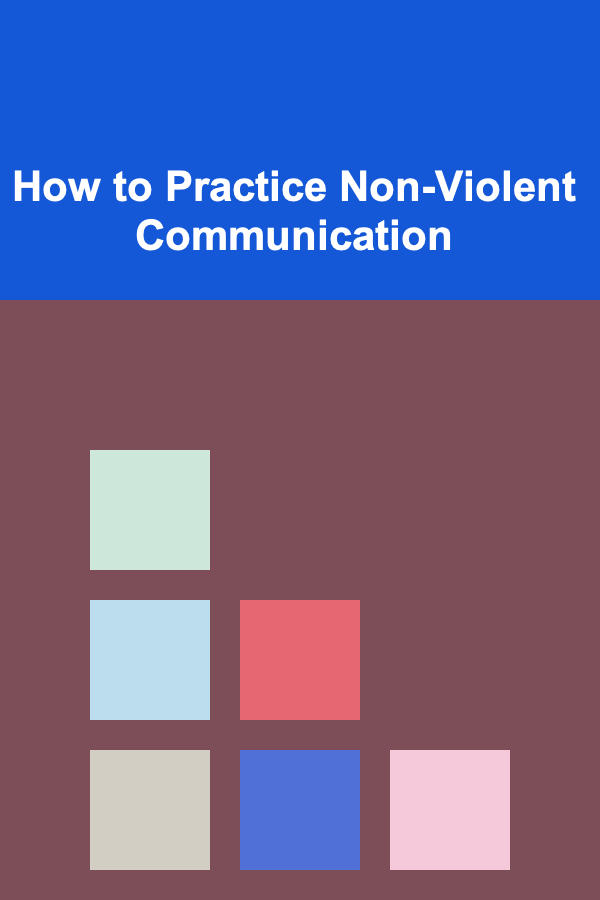
How to Hire a Marriage Event Planner for a Stress-Free Experience
ebook include PDF & Audio bundle (Micro Guide)
$12.99$8.99
Limited Time Offer! Order within the next:

Planning a wedding is often described as one of the most exciting yet stressful times in a couple's life. From selecting the venue and managing the guest list to coordinating vendors and ensuring that everything runs smoothly on the big day, the responsibilities involved can feel overwhelming. This is where a marriage event planner comes into play. By hiring a professional, couples can alleviate much of this stress while still creating a dream wedding that reflects their personality and preferences. This comprehensive guide will explore how to hire a marriage event planner who will contribute to a smooth, enjoyable, and memorable wedding experience.
Understanding the Role of a Marriage Event Planner
Before diving into the process of hiring an event planner, it's essential to understand what these professionals do and how they can help you achieve your vision.
1. Comprehensive Planning
Marriage event planners assist couples in every aspect of wedding planning, from initial concept development to post-wedding follow-up. Their services can include:
- Budget management
- Venue selection
- Vendor coordination (caterers, florists, photographers, etc.)
- Timeline creation
- Day-of coordination
2. Creative Expertise
Planners are often experienced in design and aesthetics, helping couples develop themes and styles that reflect their personalities. They offer creative solutions and ideas that may not have been considered by the couple.
3. Stress Reduction
One of the primary benefits of hiring an event planner is the reduction of stress. Planners manage logistics, troubleshoot issues, and ensure that everything goes according to plan on the wedding day, allowing couples to focus on enjoying the moment.
4. Vendor Relationships
Experienced planners typically have established relationships with various vendors, which can lead to better rates, reliable recommendations, and smoother communication throughout the planning process.
Steps for Hiring the Right Marriage Event Planner
When it comes to hiring a marriage event planner, the process should be thoughtful and methodical. Here's a step-by-step guide to ensure you find the perfect match for your wedding needs.
Step 1: Define Your Wedding Vision
Before beginning your search for an event planner, it's crucial to define your vision for the wedding.
1.1. Determine Your Style
Think about the style and theme you want for your wedding. Consider aesthetic elements such as colors, decor, and overall vibe---formal, rustic, beachy, romantic, etc.
1.2. Identify Your Priorities
List the aspects of the wedding that are most important to you. Is it the venue, catering, photography, or entertainment? Understanding your priorities will help you communicate effectively with potential planners.
1.3. Set a Budget
Establishing a budget early on will guide your decisions and help you find a planner who fits within your financial parameters. Be realistic about what you can afford and consider allocating a portion of your budget specifically for the planner's services.
Step 2: Research Potential Planners
With your vision and budget defined, begin researching potential marriage event planners.
2.1. Seek Recommendations
Ask friends, family, or colleagues for recommendations. Personal referrals can provide valuable insights into planners' strengths and weaknesses based on firsthand experiences.
2.2. Explore Online Resources
Utilize online platforms such as wedding websites, social media, and review sites (like The Knot or WeddingWire) to find planners in your area. Look for portfolios showcasing their previous work and client testimonials.
2.3. Attend Bridal Shows
Participating in bridal shows or expos allows you to meet multiple planners in one place. You can get a sense of their personalities, styles, and offerings while also gathering inspiration for your wedding.
Step 3: Evaluate Credentials and Experience
As you narrow down your list of potential planners, evaluate their credentials and experience.
3.1. Check Qualifications
Look for planners with formal training and certifications in event planning or related fields. While experience is critical, training can indicate a higher level of professionalism.
3.2. Review Portfolios
Examine planners' portfolios to assess their style and capabilities. Look for a diverse range of events they've planned---this can demonstrate versatility and creativity.
3.3. Ask About Experience
Inquire about their experience with weddings similar to yours in size, theme, and complexity. A planner who has successfully managed similar events will likely understand the nuances involved.
Step 4: Interview Potential Planners
Once you've shortlisted a few candidates, schedule interviews to discuss your wedding plans and gauge compatibility.
4.1. Prepare Questions
Develop a set of questions to ask during the interviews. Some essential inquiries might include:
- What services do you offer?
- Can you provide references from previous clients?
- How do you handle budgeting and vendor negotiations?
- What happens if there is a problem on the day of the wedding?
4.2. Assess Communication Style
Pay attention to how each planner communicates. Are they responsive, attentive, and easy to talk to? A strong rapport is vital for a successful working relationship.
4.3. Discuss Your Vision
Share your wedding vision and listen to their feedback. A good planner will actively engage in the conversation, offering insights and suggestions that align with your ideas.
Step 5: Understand Pricing and Contracts
Once you've identified a planner you'd like to work with, it's time to discuss pricing and contracts.
5.1. Clarify Fee Structure
Inquire about the planner's fee structure. It may vary based on the level of service, so ask about packages, hourly rates, or flat fees. Ensure you understand what's included in their services.
5.2. Discuss Payment Terms
Clarify payment schedules, deposit requirements, and any cancellation policies. Knowing the financial aspects upfront will prevent misunderstandings later.
5.3. Review the Contract
Carefully review the contract before signing. It should outline the scope of services, fees, payment terms, and any other relevant details. If anything is unclear, don't hesitate to ask for clarification.
Step 6: Collaborate on Planning Details
After hiring your planner, the real work begins. Effective collaboration is key to bringing your wedding vision to life.
6.1. Establish a Timeline
Work with your planner to create a detailed timeline leading up to the wedding day. This should include deadlines for booking vendors, sending invitations, and finalizing details.
6.2. Communicate Regularly
Stay in touch with your planner throughout the planning process. Regular check-ins create opportunities to discuss progress, address concerns, and make necessary adjustments.
6.3. Provide Feedback
Be open to providing feedback regarding vendor selections, décor choices, and other planning elements. Constructive communication helps ensure your vision is realized.
Step 7: Plan for the Big Day
As the wedding day approaches, collaborate closely with your planner to finalize all arrangements.
7.1. Confirm Vendor Arrangements
Ensure all vendors are confirmed, including their arrival times, responsibilities, and any special requests. Your planner will often take care of this on your behalf.
7.2. Conduct a Final Walkthrough
Schedule a final walkthrough of the venue with your planner to review layout, décor, and logistics. This walk-through allows you to visualize the day and make necessary adjustments.
7.3. Create a Detailed Schedule
Develop a detailed schedule for the wedding day, outlining timelines for hair and makeup, transportation, ceremony, reception, and other key moments.
Step 8: Trust Your Planner on the Day of the Wedding
On your wedding day, trust your planner to manage the logistics while you enjoy the celebration.
8.1. Delegate Responsibilities
Inform your family and friends that your planner is the main point of contact for any questions or issues that arise. This prevents unnecessary distractions for you on your special day.
8.2. Focus on the Moment
Immerse yourself in the joy and magic of your wedding day. Your planner is trained to handle unexpected situations, allowing you to relax and enjoy the festivities.
Step 9: Reflect Post-Wedding
After the wedding, take the time to reflect on the entire experience and express gratitude to your planner.
9.1. Send Thank You Notes
Consider sending a handwritten thank-you note to your planner, expressing appreciation for their hard work and dedication.
9.2. Provide Feedback
Share your thoughts on the planning process and the day itself. Your feedback can help your planner improve their services and may also be valuable for prospective clients.
9.3. Keep the Relationship Alive
If you had a positive experience with your planner, maintain contact for future events or anniversaries. A good relationship can yield benefits down the line.
Additional Tips for a Successful Experience
While the above steps provide a solid foundation for hiring a marriage event planner, here are some additional tips to enhance your experience:
1. Be Open-Minded
Planning a wedding often involves compromise and flexibility. Be open to the planner's suggestions and expertise, even if they differ from your original vision.
2. Stay Organized
Keep all relevant documents, contracts, and communications organized. This will facilitate smooth communication and ensure nothing is overlooked.
3. Embrace Creativity
Allow your planner to bring their creative ideas to the table. They may suggest unique elements that enhance your wedding experience in ways you didn't anticipate.
4. Set Clear Boundaries
Communicate your preferences regarding involvement in the planning process. While some couples prefer to be hands-on, others may want to step back and let the planner take charge.
5. Maintain a Positive Attitude
Weddings can be stressful, but maintaining a positive attitude will help foster a productive relationship with your planner and lead to a more enjoyable planning experience.
Conclusion
Hiring a marriage event planner can transform the often-overwhelming process of wedding planning into a more manageable and enjoyable experience. By following the steps outlined in this guide---defining your vision, researching potential planners, conducting interviews, and collaborating closely---you can find a professional who aligns with your goals and brings your dream wedding to life.
Ultimately, the key to a stress-free experience lies in clear communication, mutual respect, and trust in your planner's expertise. With the right partnership, you can create a beautiful and unforgettable celebration that reflects your unique love story. Embrace the journey, enjoy the planning process, and look forward to the joyous memories that await you on your special day.

How to Use Event Planning Skills to Make Money
Read More
Mastering Corporate Communication: Essential Skills for Building Brand Reputation
Read More
How To Use Essential Oils for Cleaning and Home Wellness
Read More
How To Understand the Psychology of Consumer Behavior
Read More
How to Practice Non-Violent Communication
Read More
How to Cultivate Personal Boundaries
Read MoreOther Products

How to Use Event Planning Skills to Make Money
Read More
Mastering Corporate Communication: Essential Skills for Building Brand Reputation
Read More
How To Use Essential Oils for Cleaning and Home Wellness
Read More
How To Understand the Psychology of Consumer Behavior
Read More
How to Practice Non-Violent Communication
Read More